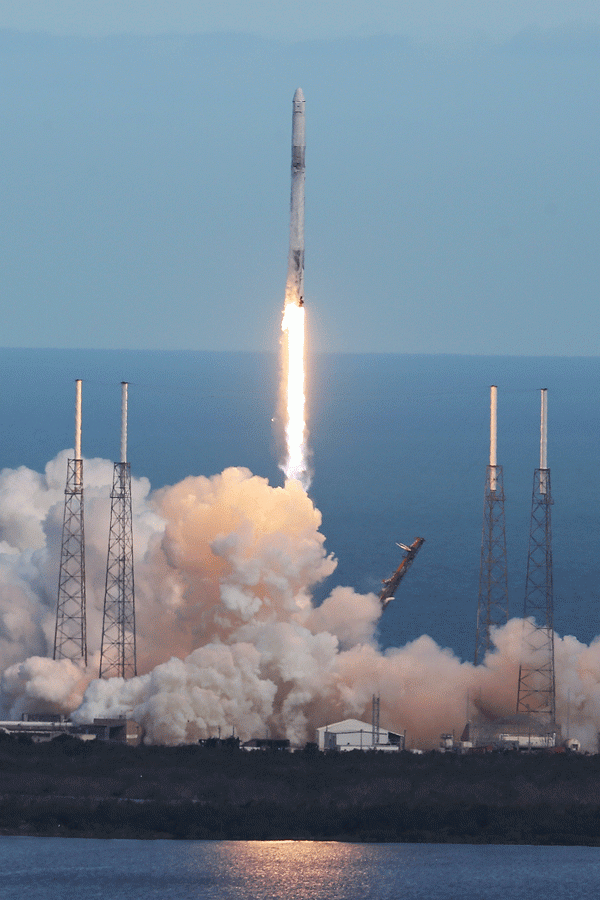Bacteria on International Space Station found to be mutated but not dangerous
Red Huber/Orlando Sentinel/TNS
A space shuttle takes off to fly to the International Space Station. Bacteria on the ISS have mutated, but aren’t showing any signs of antibiotic resistance.
January 10, 2019
A recent Northwestern study of bacteria in the International Space Station found that the microbes have not mutated into antibiotic-resistant superbugs as some had feared, according to a University news release.
McCormick Prof. Erica Hartmann, who led the study, compared genes in strains of Staphylococcus aureus and Bacillus cereus — two bacteria living on Earth — to the same strains living in the ISS. She found that while the bacteria from the ISS are adapting to survive in space, they aren’t changing in any way that is dangerous to humans — the microbes are just trying to survive, the release said.
“These are stressful, harsh conditions,” Hartmann said in the release. “Does the environment select for superbugs because they have an advantage? The answer appears to be ‘no.’”
However, that doesn’t mean astronauts and space travelers can let their guard down, the release said. While astronauts are often very healthy, future space tourists could bring infections into an enclosed space and cause an outbreak, Hartmann said.
“We can’t say that it won’t transfer to other people,” she added. “It’s like when someone coughs on an airplane, and everyone gets sick.”
Email: cameroncook2021@u.northwestern.edu
Twitter: @cam_e_cook



